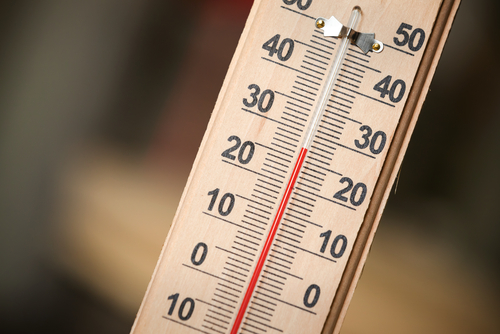10 Natural recipes for better sleep!
updated the 7 October 2015 à 00:00
Here’s how to fight insomnia, nocturnal awakenings or rising at ungodly hours…
Choose the right temperature:
“To fall asleep easily, the body temperature, and that of the brain, should first drop slightly,” says Dr. Damien Léger*, who directs the Sleeping Centre at the Hôtel-Dieu in Paris. “When it is too hot or you are feeling warm on a particular evening, a cool shower can help. Remember to refresh the head rather than the body. The ideal bedroom temperature is 19-20°C, so put on light clothing and slip into bed, not overly wrapped up (a single blanket or quilt is ideal). We also know that putting on socks during winter can promote heat exchange.” A cool head and warm feet: a natural hot water bottle!
*Author of “Bien dormir, enfin!” (Sleep well, finally!) (First Editions).
Enhance the contrast between being awake and asleep:
…by avoiding rolling around in bed. The advice of Dr François Marchand*: only lie down when you really want to sleep, and instead shorten your nights, which create a sleep debt and hence enhances the quality of your sleep. Avoid napping. Do not stay in bed in the morning to compensate for insomnia.
* Author of “Des nuits sans insomnie” (Nights without insomnia) (Albin Michel).
A drop of essential oil:
Massage the solar plexus or the wrists with some essential oil. You can also pour it on a cotton ball and tuck it under your pillow (note: this should be avoided during pregnancy). The two recommendations of Christian Escriva, producer of biodynamic essential oils (EO) and organizer of courses*:
• Petitgrain Mandarin essential oil: “It contains nitrogen compounds (such as rose) which give a plump and rounded note to its fragrance. Almost overwhelming, it has an opiate and disconnecting effect.”
• Lavender essential oil: “The higher the altitude at which the plant was harvested, the better it plays on the psychic and soothes the mind. There are some wonderful Lavender essential oils harvested at 1800 metres. ”
*www.helichryse.com
St. John’s Wort (hypercium perforatum):
“It works on our mental frameworks,” explains Christian Escriva. “It stimulates creativity and allows you to explore new options when seeking a solution to a difficult situation. REM sleep is when we dream the most. Today, we consider that during this phase, our brain, in full operation, then puts in some sort of order in connections. The effects of the oil would boost this effect, but it is especially important not to take too much. In hydrolate form: one teaspoon in a glass of water” To take over a course of 15 days.
Carbohydrates in the evening:
“Absorption of proteins causes an increase in body temperature. However, it must fall for us to fall asleep easily. Since dinner is often the only meal we eat as a family, we should find a compromise rather than skip the meal altogether,” says Véronique Liegeois, dietician. Thus, opt for carbohydrates (such as rice, noodles and potatoes), fish rather than meat, and eggs if they are not fried.
Foods rich in magnesium and dairy products:
“These good neuromuscular relaxants,” explains Véronique Liege. They include whole grains, bananas and chocolate, and should be consumed during the day rather than at night.
As for milk, it has the reputation of being sedative. Yogurt, however, is more easily digested. Avoid fermented cheeses like Roquefort and Munster, as they have stimulant effects. Choose rather hard cheeses, such as cheddar,” advises Véronique Liege.
Cooked fruits and vegetables:
The soup is perfectly adapted for this, and cooked vegetables are preferable to raw vegetables, which take longer to digest. Avoid strong spices and excess vitamin C (in raw fruits). Opt instead for stewed apples, peaches or pears. Eat enough to satiate your hunger, and wait quietly an hour and a half to two hours before slipping into bed.
The before-bedtime comfort rituals:
“I cannot fall asleep without reading at least three or four pages of a good book,” said late French author André Gide. A little poetry, three pages of an inspiring biography or a favourite book is sometimes just enough to change your view of the world and open the door to your dreams. Spray on a little perfume, put on some hand cream, have a cool glass of water…succumb to your little habits; they help you sleep happy.
An infusion:
“It is best not to mix too many plants at once, states Christian Escriva, who recommends either:
• lime, soothing, with calming and anti-spasmodic properties, for neurogenic insomnia. Two teaspoons per cup, brew for 5 minutes. Consume a maximum of three cups per day, after meals.
• verbena, digestive. The officinale variety is the most effective. Otherwise, use sweet-scented verbena. Count seven grams per 250ml of water. Soak the dry leaves in cold water for 10-15 minutes. Boil for a few seconds. Leave to infuse for 10 minutes. Three to four cups per day at maximum…
Martine Azoulai



